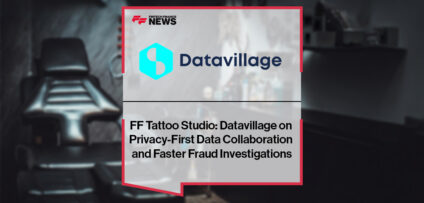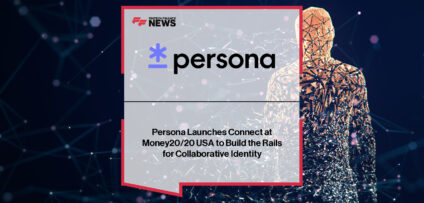Breaking News

EXCLUSIVE: “Not-so-Secret Agents” – Fernando Cea and Antoni Vidiella, Globant in ‘The Fintech Magazine’
Agentic AI is working alongside engineers at Globant to shape systems and processes for its banking and other clients. It’s probably the most important step-change in manufacturing ‘since Henry Ford’s assembly line’
Consumers can no longer ignore the power of AI, with assistants entering the digital space in everything from Google search to WhatsApp and chat bots on retail websites. But for Globant, AI is more than a feature on a user interface – AI is developing the firm’s software from front to back.
The Argentine-hatched business has been invested in AI for more than a decade, operating a decentralised ‘studio’ model, where teams specialise in verticals such as airlines, finance, energy and media, or on specific client platforms, such as Salesforce and Google Cloud. A primary focus of those teams is the development of AI agents to transform client IT workflows – including for banks.
“Agents help on one side to integrate workflows, and, on the other to change how software is made,” says Fernando Cea, Globant Technology Vice President for the Middle East and APAC. “We call it AI programming. We use agents to read legacy code and processes, which is a faster way of gaining a deep understanding.”
Globant counts more than 1,000 clients in 80 countries, including The Walt Disney Company, Nissan and Santander, and has evolved from a focus on software to the incorporation of AI into businesses’ systems. Launched in Buenos Aires in 2003, it achieved unicorn status with a $1billion valuation in 2015, one year after its IPO on the New York Stock Exchange. The firm’s valuation now stands at around $5billion, and it employs 31,200 staff in 35 countries.
Globant’s work to replace an Argentinian bank’s legacy mainframe system with a modern Cloud infrastructure demonstrates how it uses AI agents to help run the process.
COBOL crunch
The client, a subsidiary of an international bank, was facing a cliff edge as a shrinking pool of IT engineers with expertise in the coding language COBOL reached retirement. The bank’s legacy system, with around 60 million lines of code, was decades old, which presented security risks, and it was holding back the bank’s ability to launch modern products.
During a four-week pilot project, the Globant team used AI to document the critical knowledge held within the legacy source code, then developed Java microservices aligned with the bank’s target architecture to run a parallel system that performed the same functions, but better. The rules held within the COBOL code – a language launched in 1959 – were extracted by Globant’s AI accelerator platform GeneXus Enterprise AI, and its findings were then validated by the bank’s IT team.
The proof-of-concept project resulted in 11,600 lines of code being translated into 4,921 lines of Java microservices code in 105 hours – compared to the estimated 560 hours needed for a similar project carried out using more traditional methods.
With that work done, Globant was able to forecast a three-year timeframe for the bank’s entire IT modernisation project, instead of the 10 years that such a job typically takes. Antoni Vidiella, Managing Director for Financial Services at Globant, argues that while most attention on agentic AI has been focussed on using it as a personal productivity tool, including for banking services, it’s just as – if not more – useful in updating legacy IT.
“Most recently, agents have helped to integrate workflows and change the way software is made”
“There’s a lot of data to be sorted out, there’s a lot of legacy technology that has to be addressed,” he says. “One of the main challenges is to move legacy fast at a lower cost. Everything going backwards in the operations, especially for incumbent banks, can be transformed using AI.”
Agentic AI systems work like individuals in a collaborative environment – which Globant says differs from large language models, which are solitary and rely on continuous input. The firm’s engineers now use AI agents throughout the software development process. The first step in that process involves giving a product description to a ‘prototyping agent’, which then creates the backend of a business application, which can be subsequently modified by an engineer with text commands.
Next, an ‘application design agent’ brings the software to life by designing its front end. Once created, a ‘code fixer agent’ works on bugs found by engineers and proposes solutions – and, once approved, fixes them. And finally, before launch, a ‘test agent’ is unleashed to scan the entire product for further potential problems.
Globant says agentic AI is a major step forward because an agent can act independently, requiring less human intervention than traditional standalone AI systems. The level of ‘agency’ – from fully autonomous to semi-autonomous with a human in the loop – is determined by oversight needs, which for banks could be proscribed by a financial regulator.
Fully committed
Globant has gone all-in on AI in recent years, and its latest annual results reveal AI-related projects contributed more than $350million to revenue in 2024, a 110 per cent increase on 2023. Total revenue hit $2.4billion, up 15.3 per cent year-on-year, with new markets in the Middle East and APAC rising 43.8 per cent, and revenue from Disney, the firm’s largest client.
Company founder Martin Migoya has likened the opportunity presented by AI to Henry Ford’s groundbreaking implementation of the moving assembly line in the early 20th century, which transformed manufacturing across not just the motor industry but multiple sectors. In the last six months, Globant has entered strategic partnerships with Faros AI (Globant engineers use Faros to assess software productivity) and Google Cloud – a tie-up that aims to boost the use of Google Cloud AI across industry.
Cea says such integrations are the ‘traditional way of introducing AI’, while investment in agents for the automation of workflows is a modern feature of the Age of AI. Globant’s engineers are actively encouraged to keep abreast of industry developments and build solutions that are not tied to any particular partner’s product.
“Most recently, agents have helped to integrate workflows and change the way software is made. We’re trying to look at problems in a very different way.
“Every day you wake up and have new options, new large language models, new solutions,” Cea says. “The challenge is to keep up-to-date and build agnostic solutions.”
Mega trends
The rise of agentic AI is one of five areas of key innovation highlighted by Globant’s Tech Trends 2025 report. The other four are quantum computing, robotics, synthetic humans (which could involve giving chat bots a human face and personality), and, lastly, ‘invisible experiences’ whereby technology anticipates a person’s needs.
For Vidiella, embracing these technology trends mean banks can transform how they interact with customers to present products and services. He believes the development of synthetic humans will be of particular importance in financial services, as it is already known that AI-driven systems that communicate to customers with human-like responses are, ultimately, more efficient and win trust.
The Tech Trends 2025 report quotes figures from US tech consultancy Gartner, which includes a prediction that by next year, 50 per cent of B2B buyers will interact with a digital human in a buying cycle. Synthetic humans mirror human personalities, behaviour and intelligence, and, according to the report, will soon ‘be your digital friend in every kind of experience with every business you deal with’.
When it comes to financial services, Vidiella says: “Customers will experience a new relationship with financial institutions, it will be more embedded in their daily lives.
“Customer experience will change from flat, non-personalised digital apps that are the same for everyone, to a multi-modal framework that adapts to the client, whether that’s an elderly person or a student.
“AI will change how a bank addresses you, how it serves you, how it recommends a product to you and gives you financial advice.”
This article was published in The Fintech Magazine Issue #35, Page 19-20
Companies In This Post
- FF Tattoo Studio: Fenergo on Native ID&V and the Fight Against FinCrime Read more
- Generative AI in Banking: From POCs to Front-Office Impact Read more
- EXCLUSIVE: “Chain Reaction” – Sergey Nazarov and Fernando Vazquez, Chainlink in ‘The Paytech Magazine’ Read more
- FF Tattoo Studio: Datavillage on Privacy-First Data Collaboration and Faster Fraud Investigations Read more
- Chancellor Unveils Plans to “Supercharge” Growth of Innovative Financial Services Firms Read more



















